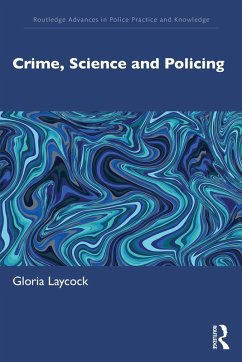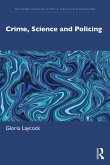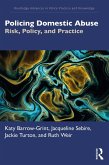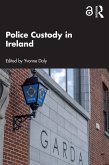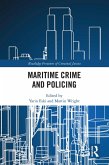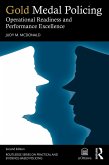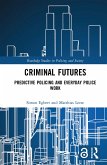Dieser Download kann aus rechtlichen Gründen nur mit Rechnungsadresse in A, B, BG, CY, CZ, D, DK, EW, E, FIN, F, GR, HR, H, IRL, I, LT, L, LR, M, NL, PL, P, R, S, SLO, SK ausgeliefert werden.
Mike Barton, Former Chief Constable, Durham Constabulary
This book is for practitioners. It explains clearly what Crime Science is, and how it fits into effective problem solving. Every chapter ends with a concise summary. Just don't be tempted to skip the text and jump straight to it! It is a book from which can everyone learn, whether a new recruit, or an experienced officer. The world of policing is forever changing, and policing needs to be constantly adapting in response, this book suggests a direction for that change.
Sylvia Chenery, Applied Criminology Associates
With policing around the world under increased scrutiny, this book addresses the importance of science as a critical enabler of ethical crime reduction. Packed with insights and examples about how to test ideas, improve problem-solving, manage demand, and drive crime prevention, and with a final section focused on new trends and risks, Professor Laycock is required reading for all practitioners with an interest in future policing.
Mark Evans, New Zealand Police Executive and Visiting Professor at UCL
This invaluable book should be required reading for all those about to embark on a policing degree, while they can still discern the policing wood from the procedural trees.
Professor Ken Pease, Department of Security and Crime Science, UCL, London
Gloria Laycock has done more than anyone else in the UK to lead and to conduct research orientated to improving policing. This book is the culmination of that work. It is wise, readable, and relevant to the work of all those involved in or responsible for our police services.
Professor Nick Tilley, Department of Security and Crime Science, UCL, London
In this book Prof Laycock does what she does so well - she explains academic concepts and research in plain English, in an engaging manner, and with the practical application hammered home. The book is at the same time authoritative and accessible, reflecting Professor Laycock's impressive research career and her vast experience of working directly with police and crime prevention practitioners.
Professor Richard Wortley, Jill Dando Institute of Security and Crime Science, UCL and Waikato University, New Zealand

